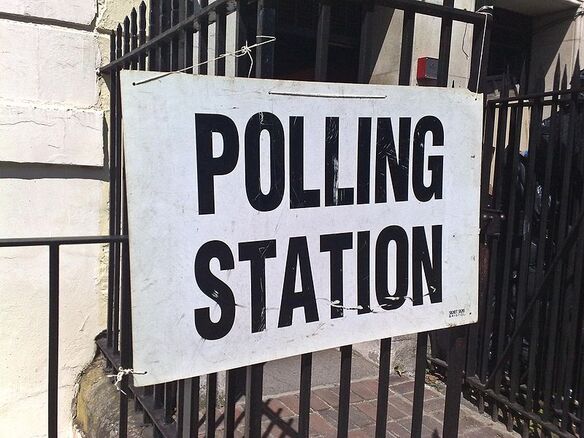|
4/29/2022 The Opinion Makers: An Insider Exposes the Truth Behind Polls. David W. Moore. Reviewed By: Thomas Riggins (8/9)Read NowChapter 7 "Uncertain Future"In this chapter Moore tries to look ahead at the future of polling. He begins with a discussion of how the polls blew it with regard to their predictions of the outcome of the New Hampshire primary held in January 2008. 11 different polls forecast a defeat for Clinton and a victory for Obama. Clinton won. The main reason the polls were wrong, Moore believes, is because they stopped polling too early. There were many undecided voters and there was a big pro Clinton shift just a couple of days before the election. Besides stopping polling too early, what other things go on with polls that can make them unreliable? We have discussed some of the problems in earlier parts of this series so let's look at some new problems. First there is the problem of getting a "representative sample." Many polls have a big problem with non responsive contacts. So, there arises the question if those who do agree to respond are just as "representative" of the population as the larger group which includes responsive and non responsive individuals. One way to handle this problem is to check your representative sample against something called the CPS, i.e., "current population survey" which is provided by the U.S. Census. Moore says there are five groups that are underrepresented by polls, namely, "those who are younger, lower educated, Hispanic, nonwhite, and living in urban areas." This may look like a serious problem, but it is not. Pollsters can correct for this bias by using the CPS which allows for the "under represented people in the survey [i.e., the poll] to be accorded the same influence their group would have in the population at large...." Nevertheless, Moore does point out some problems that standard polling faces even with the CPS. The way most polls are conducted results in overrepresentation of Republicans and conservatives at the expense of moderates and Democrats. Even using "rigorous" techniques not usually applied to most polls in order to get a better representative sample one pollster admitted that "much of the population remained beyond our view." So there we were 2 weeks before the 2008 general election with the polls favoring Obama. Maybe so-- but we shouldn’t have trusted their accuracy. Especially when Moore says that since so many would be respondents would just fail to respond to a poll that "it represents an ever-present threat to the validity of all polls." There is also a problem Moore doesn't discuss: i.e., widespread vote rigging and voter intimidation by the Republicans that may throw off the polls and change the (official) outcome of the election. What about people who only use cell phones? The consensus was that not enough people only use cell phones to make lack of contact with this segment of the population a problem. Figures indicate that about 7 per cent of voters in 2004 only had cell phones and no land lines. These were also mostly younger voters. Using the CPS they can be weighted into the general population and it will not affect the representative sample which pollsters are trying to select. This may not always be the case and in January 2008 Gallop began cell phone interviewing as well as the typical landline interviewing technique. Moore said it's just a matter of time before this becomes a general practice for all the polls. And now, let's look at internet polling. This was not working out too well. Harris and Zogby did internet polling. They got volunteers to join a panel and then sent them questionnaires. The problem was their "panels tended to be disproportionately white, male, young, better educated, techno-oriented, and, apparently, conservative." They were simply not representative. At least as far as elections go, telephone polls appeared to be the better tool. Another problem with Harris' and Zogby's internet polls was that they were very secretive about how they arrived at their results. Moore says, "that they violate many of the scientific approaches developed over the past several decades for obtaining representative samples of the general public." There was one other poll, Knowledge Networks, doing internet polling that was trying to use the best scientific principles. It still had some problems but it seems if internet polling has a real future it will be along the lines established by this firm. Moore draws three conclusions at the end of this chapter. 1. Polls will continue to manufacture rather than report public opinion if they don't change the way they ask and analyze their questions. 2. As a result of not changing their methods they will continue to serve the powerful entrenched interests not the public. 3. Therefore, most people will start to see polls as the enemy of the democratic process rather than the help they could be. Since their real incentive is to make money serving their clients, not honestly reporting public opinion, I don't see how they are going to change. Coming up, the final part of this series, Chapter 8 "A New Direction." AuthorThomas Riggins is a retired philosophy teacher (NYU, The New School of Social Research, among others) who received a PhD from the CUNY Graduate Center (1983). He has been active in the civil rights and peace movements since the 1960s when he was chairman of the Young People's Socialist League at Florida State University and also worked for CORE in voter registration in north Florida (Leon County). He has written for many online publications such as People's World and Political Affairs where he was an associate editor. He also served on the board of the Bertrand Russell Society and was president of the Corliss Lamont chapter in New York City of the American Humanist Association.
0 Comments
Leave a Reply. |
Details
AuthorWrite something about yourself. No need to be fancy, just an overview. ArchivesCategories |

 RSS Feed
RSS Feed